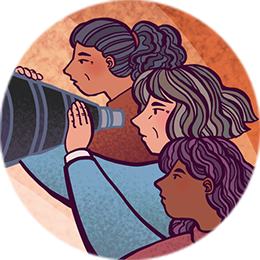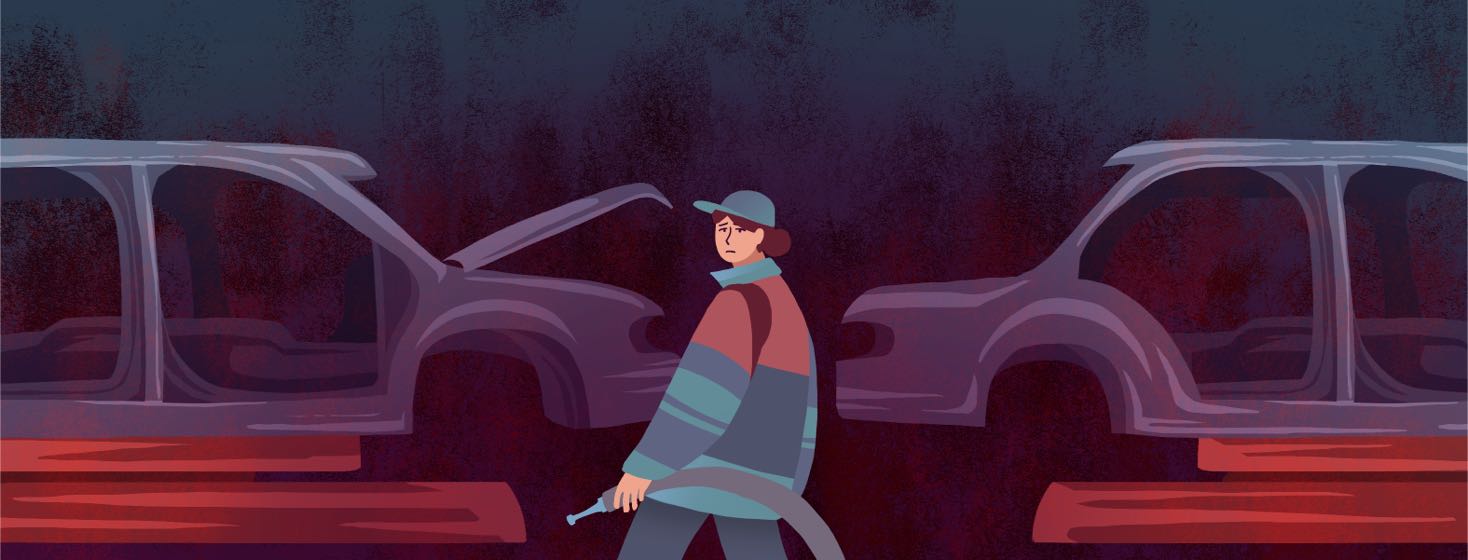How Did I Get an "Old Man's" Cancer?
Since the first diagnosis, the burning question has been, "How did I get this disease?" No, I do not smoke. No, I don't drink alcohol. No, I don't abuse drugs. No, no one in my family has had bladder cancer. No, I am clearly not a man. No, I am obviously not over 60 - at least at the time of my diagnosis.
So, how did I get an "old man's cancer?"
Was I poisoned in the paint booth?
When I was 19, I left my housekeeping job to work in an auto plant. My many duties ranged from changing water pumps to pressing metal into car parts. The work was intense and exhausting. But I wanted to prove I could handle it. So, despite frequent layoffs and shutdowns, I stayed for nearly 10 years. Besides, the pay and benefits were excellent.
I remember one job assignment more than others - removing excess primer from auto bodies. In a nutshell, I washed the cars down with paint remover. For many shifts, I inhaled the fumes without wearing a safety mask because none was provided. I must have been exposed to other chemicals, as well. But I never thought I was in any danger.
Well, what else causes bladder cancer?
In my generation, everybody knew smoking caused cancer. It was constantly drummed into us. And like most curious children, I tried it once or twice. But I never picked up the habit. Therefore, I doubt that a few childhood puffs gave me bladder cancer.
Now, I am aware of environmental risks, such as food additives and aromatic pollutants. Since my first diagnosis, I try to avoid them as much as possible. I don't question whether it is 100 percent effective. I rely on a number of interventions to stop cancer. I can't prove it but avoiding carcinogens has quite possibly prevented recurrences.
Making the workplace connection
Before my TURBT in June 2021, I shared this history with the urologist. He instantly tied it to my bladder cancer. For the first time, there was a probable cause for my having an old man's cancer - it wasn't a random occurrence, as I once believed.
On a side note: Several years into my journey, I learned the truth about an uncle who died in the 80s. Apparently, his bladder was removed to treat cancer. I thought it was odd that we had the same disease. Ironically, oncologists avoid listing genetics as a cause for bladder cancer. That means there was no strong connection between our two cases. How did I get it, then?
Does it matter what caused my cancer?
After 16 years of chronic recurrences, I am determined to know what mutated my cell DNA. While experts have suggested many possibilities, they may never be precisely proven. But the World Health Organization concludes, it is well documented that occupational carcinogens are causally related to lung cancer, mesothelioma, and bladder cancer.1
So, what is the best solution for managing this chronic disease? Speaking from my own sense of responsibility, the WHO also concludes, Early diagnosis improves cancer outcomes by providing care at the earliest possible stage and is, therefore, an important public health strategy in all settings.2
For my part, I commit to prevention and early diagnosis for as long as it takes.
Could I have prevented the old man's cancer?
In hindsight, I would tell my 19-year-old self not to take that job at the auto plant. I doubt that she would listen, though. Remember pay and benefits, in the '70s and '80s? I believe she would take her chances at beating the odds. Her decision has brought me here, today. I can only move forward using my current knowledge for good. It won't reverse this old man's disease. But I intend to conquer it.
Between 30 to 50 percent of all cancer cases are preventable. Prevention offers the most cost-effective long-term strategy for the control of cancer.1,2
I believe it with my whole soul that cancer can be defeated. Now, let's get to work!


Join the conversation